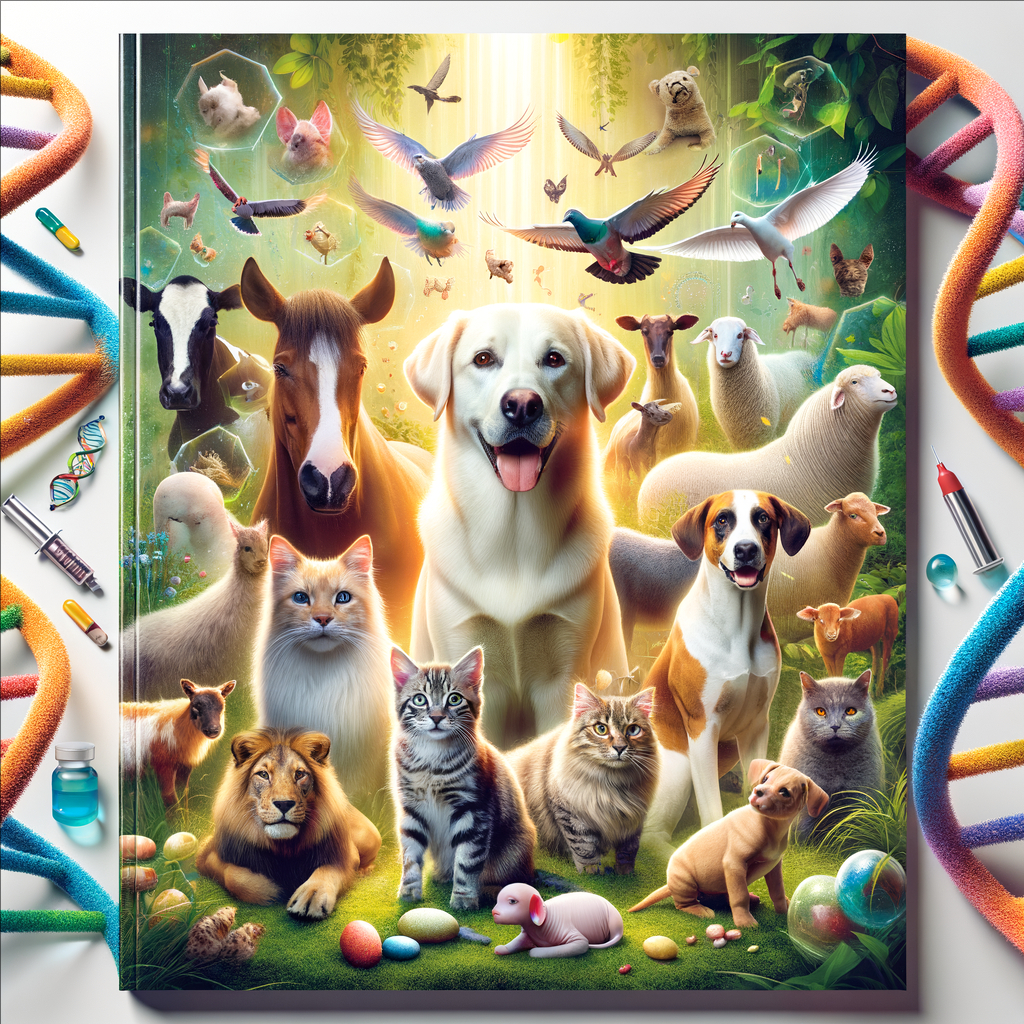The Role of Genetic Testing in Responsible Breeding
Understanding Genetic Testing
At its core, genetic testing involves the analysis of an organism’s DNA to identify specific genes or mutations that may indicate potential health issues or hereditary conditions. For breeders, this genetic insight is invaluable, as it aids in making informed decisions about animal pairings and breeding strategies.
Types of Genetic Tests
Breeders can access various types of genetic tests, each serving a specific purpose:
- Parentage Testing: Confirms the lineage of the animal, ensuring that breeders accurately track heritage.
- Health Screening: Identifies potential genetic disorders prevalent in specific breeds, enabling breeders to take preventive measures.
- Trait Analysis: Examines genetic traits to determine desirable physical characteristics, helping breeders select for optimal qualities.
By employing these tests, breeders gain insights into their animals’ genetics that were previously inaccessible, ultimately leading to better breeding outcomes.
Enhancing Animal Health
One of the foremost advantages of genetic testing lies in its capacity to enhance animal health by preemptively identifying inherited diseases before they manifest. Through the screening of known genetic disorders that are common in specific breeds, breeders can adopt proactive strategies to mitigate risks.
Preventive Measures
To ensure healthier breeding outcomes, breeders can implement the following preventive measures:
- Avoiding Inbreeding: By refraining from mating carriers of similar hereditary conditions, breeders can reduce the likelihood of genetic disorders.
- Selecting Healthier Stock: Utilizing test results allows breeders to choose healthier animals for breeding, fostering an overall increase in the breed’s vitality.
This proactive approach not only improves the general well-being of individual animals but also fortifies the breed’s overarching health over time.
Promoting Ethical Breeding Practices
Ethics are a crucial consideration in the discourse surrounding responsible breeding practices. Genetic testing offers a structured approach that prioritizes animal welfare, ensuring that breeders make choices grounded in responsibility and transparency.
Transparency and Accountability
Employing genetic testing communicates a breeder’s commitment to ethical breeding methods. The benefits include:
- Confidence for Buyers: Prospective pet owners can approach breeders with peace of mind, knowing their future companions have undergone responsible breeding practices.
- Building Trust: When transparency is part of breeding operations—empowered by accessible genomic data—it fosters trust between breeders and pet owners, ultimately reducing the prevalence of irresponsible practices such as inbreeding or neglecting health issues.
The integration of genetic testing into breeding practices thus enhances accountability and promotes a more humane approach to breeding.
Educating Breeders and Owners
While genetic testing offers numerous benefits, the effectiveness of these tools can be maximized through education. Both breeders and prospective pet owners must understand what these tests entail and how to best apply the knowledge gleaned from them.
Workshops & Resources
To empower the breeding community with knowledge, the following resources can be valuable:
- Educational Programs: Numerous organizations offer tailored workshops focused on genetics, specifically designed for breeders to sharpen their understanding.
- Online Resources: The internet contains a wealth of up-to-date information and courses regarding the latest discoveries in veterinary genetics.
By equipping both breeders and owners with knowledge about the significance of genetics—such as recognizing signs associated with specific traits—they become more adept at making informed decisions throughout their journey together.
The Future Landscape
As we move forward, technological advancements in veterinary science are set to revolutionize the landscape of genetic testing. Improvements in sequencing techniques and methodologies promise to broaden the scope and accuracy of genetic tests, enhancing responsible breeding across multiple species.
Potential Developments
The future of genetic testing may include:
- Enhanced Predictive Models: These will assess disease risk factors based on comprehensive datasets, providing breeders with cutting-edge tools for informed decision-making.
- Real-time Monitoring Tools: Innovations could allow breeders to monitor genetic health indicators during gestation periods.
Such evolutionary advancements will ultimately foster healthier populations, ensuring sustainability among breeds—a goal that every conscientious breeder should strive to achieve.
Conclusion
In summary, embracing genetic testing represents a vital leap forward in fostering responsible breeding habits among enthusiasts worldwide. By prioritizing education alongside today’s technological advancements, we lay the groundwork for brighter futures filled with healthier, happier companions for tomorrow.
We’d love to hear from you! How do you see genetic testing influencing the future of breeding practices? Share your thoughts in the comments below. And if you found this post helpful, please share it with fellow breeders and animal lovers!
news via inbox
Nulla turp dis cursus. Integer liberos euismod pretium faucibua





